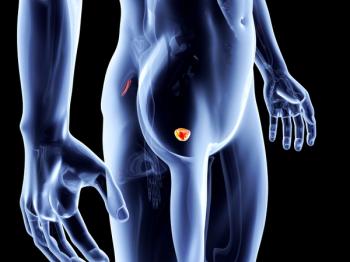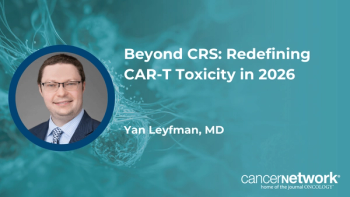
Breast Cancer Progress Is a Team Effort: See You in San Antonio
Meetings like SABCS that bring together scientists, medical professionals, and patients are essential to achieving improved outcomes in the clinic. I am grateful to all who organize and attend this event and humbled to participate.
The
I went to SABCS for the first time in 2013-I was one of 170 patient advocates in attendance. As I joined the throngs of scientists, pathologists, radiologists, surgeons, medical oncologists, geneticists, pharmaceutical representatives, and patient advocates at the opening plenary session, it was all I could to do to restrain myself from jumping up on my chair and yelling, “Hey! Those cures aren’t going to find themselves! Go home and get back to work!”
In my professional life, I cover the printing industry. Having been in my current job for 15 years, I have attended countless trade shows and conferences. I’ve learned that many significant conversations happen in the lobby of the convention center, at food court tables, in the taxi and shuttle bus lines, and, of course, at the hotel bar. Apparently, oncologists and researchers are similar to printers in this regard.
“Science (and particularly medical science) is, to an impressive degree, a social construct,”
Meetings like SABCS that bring together scientists, medical professionals, and patients are essential to achieving improved outcomes in the clinic. I am grateful to all who organize and attend this event and humbled to participate.
It is amazing to consider how this meeting has changed since its modest start in 1978, when about 50 people met at a motel near the San Antonio airport for 1 day. For the next few years, SABCS continued as a regional gathering. In 1981, it expanded to a 2-day event and the organizers issued an international call for abstracts.
“Bill McGuire really was the instigator, if you will, of the symposium,” recalled
Sledge, who received his training in breast cancer at the University of Texas at San Antonio, credits McGuire with teaching him biology’s role in the disease. “At a time when the field was concentrating on delivering ever-higher doses of ever-more complicated chemotherapy regimens, Bill taught me the importance of biology in breast cancer,” Sledge recalled. “Biology was destiny for breast cancer patients, and changing their destiny involved first understanding and then altering breast cancer biology. It is a common view today, but at the time it was a new way of looking at breast cancer therapy.”
Although McGuire didn’t live to see the rise of the genomic era, Sledge believes he would have been uniquely positioned to advance it. McGuire’s innate love of numbers, as well as his collaborations with biostatistician
Sledge further noted that McGuire surrounded himself with smart people, such as Osborne, Charles A. Coltman Jr, MD, FASCO, and
In 1996, Osborne and Coltman teamed with the
For the past 17 years, ABCF has conducted its Hot Topics Mentor Sessions at SABCS. Held on 3 consecutive evenings, these sessions feature expert speakers and panelists who review and explain the most compelling presentations. The ABCF evening sessions are like CliffsNotes for non-oncologists-perfect for an English major like me.
The fundamental goal of translational research is to bring basic lab research to patients as quickly as possible. As a metastatic breast cancer patient and SABCS attendee, I look forward to doing my part.
Newsletter
Stay up to date on recent advances in the multidisciplinary approach to cancer.














































